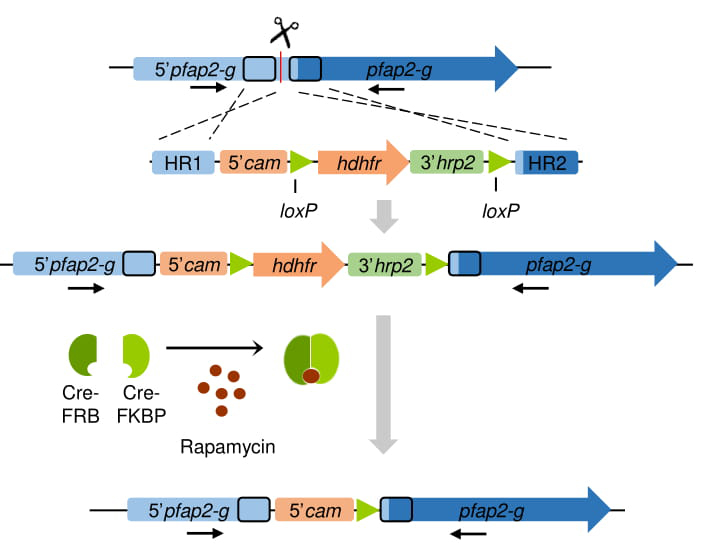Alfred Cortés – Institut de Salut Global Barcelona (ISGlobal)
Transmission of malaria from an infected human to a mosquito vector requires that some of the asexually-growing parasites in the blood convert into sexual forms called gametocytes, which are the only form of the parasite that can infect mosquitoes. Gametocytes are resistant to the majority of antimalarial drugs that effectively kill disease-causing asexual forms, implying that successfully treated malaria patients can continue transmitting the disease for several days or even weeks. Therefore, the success of malaria control and eradication efforts largely depends on being able to develop drugs that are effective against gametocytes. This will require a better knowledge of gametocyte biology, but studies on gametocytes are hampered by their low relative abundance and because early sexual forms are morphologically undistinguishable from their asexual counterparts, from which they cannot be separated.
In this article we describe the use of CRISPR-Cas9 technology and an inducible recombinase to generate Plasmodium falciparum parasites in which expression of the master regulator pfap2-g can be conditionally induced, resulting in massive sexual conversion (Fig. 1). Using these engineered parasite lines, we obtained >90% pure, synchronous populations of parasites at the initial stages of sexual development, including previously elusive sexually committed schizonts and sexual rings. To demonstrate the utility of the system, we provide a detailed transcriptomic and phenotypic characterization of these developmental stages, which identified the specific upregulated and downregulated genes that mark early sexual development. Our system will enable the characterization of early gametocytes at multiple additional levels, and also efficient screening of drugs against parasites at different stages of sexual development.
